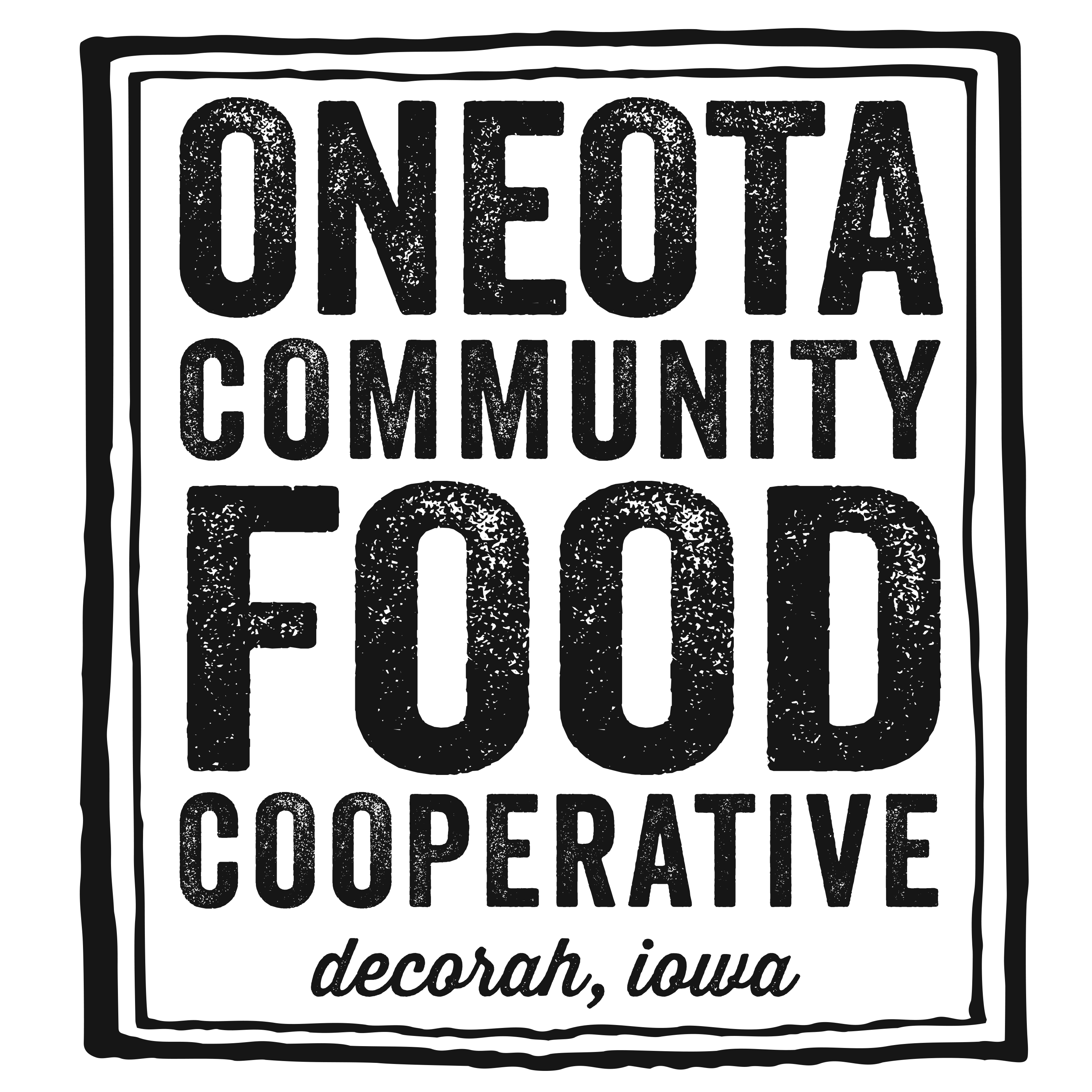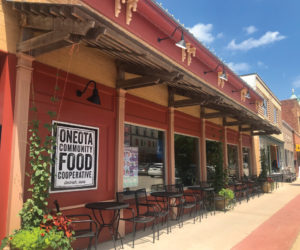
In early February, I joined two other General Managers of Iowa food cooperatives and the National Cooperative Grocers staff to help lobby for the Homegrown Organic Act. Matt Hartz of New Pioneer Co-op in Iowa City, Linda Johnson of Wheatsfield Co-op in Ames and I were asked to help advocate for this bill to be a part of the next larger Farm Bill that expires in September 2018.
Allie Mentzer, Advocacy Manager for the National Cooperative Grocers (NCG) based in Iowa City, helped organize a small group of co-op advocates to help the Environmental Working Group (EWG) organize a future phone call to Senator Chuck Grassley’s office that is scheduled in a few weeks. Sen. Grassley is well-positioned to advocate for this bill because he is on the Agriculture Committee, making his support key to the bill’s success.
What this bill is about:
According to writer Dan Nosowitz’s article in the December 13, 2017 issue of Modern Farmer, the organic farming industry in 2016 experienced a $3.7 billion increase from 2015 and is currently valued at an estimated $47 billion. However, only about one percent of U.S. farmland is dedicated to organic production. That’s where the Homegrown Organic Act of 2017 could change that. This bill aims to break down some of the barriers that new and existing organic farmers face: securing land, funding for equipment and getting the right help from the government like most commercial farmers currently receive.
The Homegrown Organic Act of 2017 would enhance three major pieces of legislation. The first one is the Conservation Stewardship Program which has a program for existing organic farmers, but nothing for farmers who want to transition their farms from conventional to organic farming. This Act would give transitioning farmers the same free assistance to implement practices that can help protect the environment. The second major program change would be the Environmental Quality Initiatives Program (EQIP). EQIP has an organic program within it that gives financial assistance to organic farmers who want to install or implement new equipment and other physical things. If you’re an organic farmer who wants to create a pollinator garden? Great! Good for everyone! EQIP can help you out. But your application would be competing with all other organic farmer applications, and there’s a hard cap on how much money EQIP will give out: $20,000 per year, or $80,000 over a six-year period. The Homegrown Organic Act would eliminate that cap, allowing larger farms to participate, and also allow for bigger and better improvements. The last of these programs is the Transition Incentives Program (TIP). TIP is an excellent program and provides incentives to retiring farmers and benefits to beginning farmers and socially disadvantaged groups wishing to farm. But, there are no current provisions for those retiring farmers selling or renting their farm to a future organic farmer. There are more and more young farmers wishing to start their operations organically and this would be a major change to help eliminate this barrier.(1)
EWG reached out to consumer co-ops like ours because they know that consumer demand for organic products continues to rise each year and we can share our experiences and data that support breaking down barriers for organic farmers. We will be able to talk about double-digit sales growth for organic products in our stores the last four years. We will be able to talk about the fact that we have created more jobs due to increasing organic sales and there are more local organic farmers selling their goods to us and to other outlets in the state. I have seen our local organic farmers be some of the most innovative and willing to take risks on niche products that our members and customers want. If the playing field could be made fairer for organic farmers, this would mean easier access to land and it would increase the domestic growth of organic products in the U.S. If we could import fewer organic products from foreign countries and grow more of them domestically, think about the shift that would happen in our environment and potential health of our communities.
What YOU can do:
The good news Is that you don’t need to be an expert on Congress or the Farm Bill to be effective! If you prefer to purchase organic products and agree that organic farming practices build a healthier environment for farm workers and all of us who live in an agricultural community, then YOU can be effective! Just write or call Senator Grassley’s office at:
Sen. Charles Grassley
135 Hart Senate Office Building
Washington, DC 20510
Phone: (202) 224-3744
FAX (202) 224-6020
Suggested verbiage:
Dear Senator Grassley,
I am writing (calling) you to support the Homegrown Organic Act to be included in the next Farm Bill. Your support would be key to this bill’s success because of your position on the Agriculture Committee and your knowledge of the complexities and diversity needed in today’s agricultural business. This bill would break down some barriers and make it easier for new or existing organic farmers to counter the most difficult elements of going organic: getting funding, securing land, and getting the right help from the government.
As a consumer of organic products, it would be beneficial for all Iowans to see more organic production in our state so that retailers and consumers can have more choices in the aisles. Reducing our need to import organically produced goods would mean more jobs, better margins for retailers, more innovation in agriculture and an overall better life in our state.
Sincerely,
(1) Excerpts from the article, An Overview of the Homegrown Organic Act of 2017 by Dan Nosowitz, Dec. 13, 2017. https://modernfarmer.com/2017/12/overview-homegrown-organic-act-2017/



